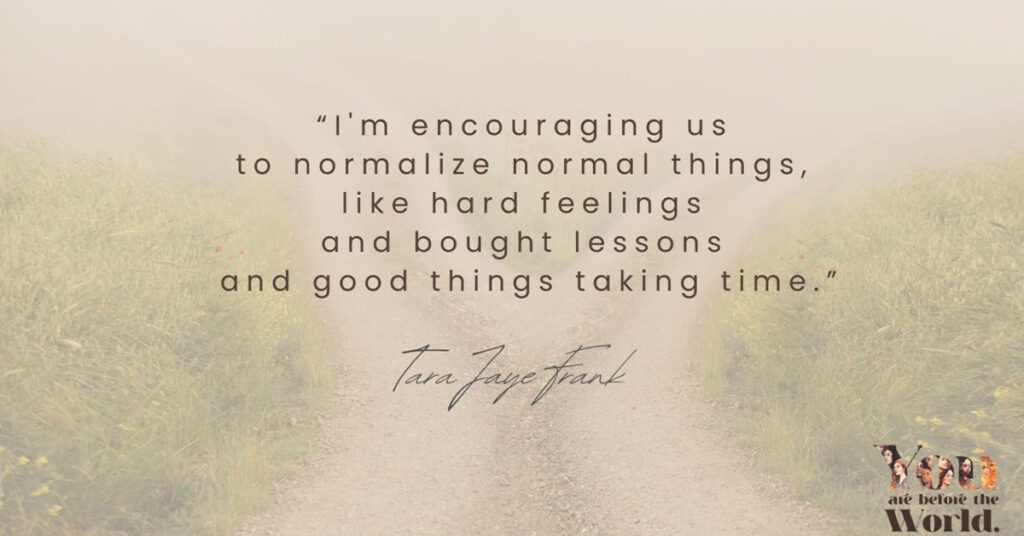A few days ago, I posted about the pointed feedback I received from an editor at a publishing house I love. It was about my new manuscript, which is a hybrid memoir and not a leadership book like she believed my audience would expect from me. The feedback wasn’t negative, and it wasn’t new. I’ve been made aware by people with a lot of experience that a memoir from a non-celebrity is a tough sell. What I was grappling with was the suggested limitation, not only on me, but on the people who follow me. I believe they want more than guidelines and advice. I believe they also want stories and accessible examples and reasons to believe that they too can thrive on their own terms and live a harmonious life. I was honest about how the editor’s response landed on me, and in the post, I shared what I decided to do about it.
My LinkedIn family flooded the comments section with thoughtful messages celebrating the value of my voice and encouraging me to keep showing up with vulnerability. It was a beautiful garden of care and generosity. Thank you!
Interestingly, I also received several private messages from friends asking if I was okay. Of course, these messages were encouraging too. But a few felt weighted with outsized concern. To be honest, it baffled me. What did I say to make you think I’m not okay?
At first, I wondered whether my original post sounded more defeatist than I intended, so I read it back. It stated a few facts, laid out my feelings about those facts, and explained how I chose to respond to my feelings. But nowhere in the post did I suggest my hope was wavering, or that I needed to be dragged out of a deep, dark hole. What gives?
Two things came up for me. The first has followed me for as long as I can remember. People get reliably uneasy with anything other than boundless optimism from me. I’m a genuinely optimistic person, and I suppose this is what they’ve come to expect. But a conversation with a good friend revealed it’s also because my words have power. If I point at my finger at a scratch, people somehow see a hatchet and a gash. Ouch.
The more important thing that struck me, though? As a collective, we struggle to embrace emotional complexity on these platforms. So much so, that when someone paints a less-than-perfect picture, we assume they’ve run out of paint.
Our six young adult children grew up with Instagram before Instagram went to therapy. They got to know the platform through perfectly posed photos, inspirational posts about the good life, and a nonstop barrage of winners winning. So much winning!
In its early days, IG was primarily a never-ending scroll of enviable people in extraordinary places having unforgettable experiences. In conversations with my own children and other young folks, it’s evident that a front-row seat to the curated life planted a seed in them that’s at odds with reality. They may know better in theory, but because of their early exposures, a failure feels like failing. A loss feels like losing. They’ve internalized the lie that “successful” people succeed with ease, and that if a goal takes too long or too much effort to achieve, it must be because they don’t have what it takes.
Fake news. It’s not real.
I made a conscious decision to be more human on this platform because I don’t want my children or yours (or you, for that matter) to believe that the road to success is all chutes and no ladders. I don’t want you to think, even for a second, that the people you admire are never afraid. Or disappointed. Or frustrated. Or sad. These feelings are natural, and they travel alongside any person who dares to live a brave life. While we’ve all witnessed the occasional rocket ship win, achievement is seldom a straight, vertical line. More often, it is a winding curve that, when you insist on learning something at each bend and in each valley, trends upward. We often talk about “the journey of life,” but we still prefer the shortcut. (Myself included.)
Don’t get me wrong, support is always welcome. Love is always received. Standing in agreement is a blessing. But I am encouraging us to normalize normal things, like hard feelings and bought lessons and good things taking time.
This is life. This is divine orchestration. This is surrender.
I am good! And so are you.
With love,
Tara Jaye Frank
